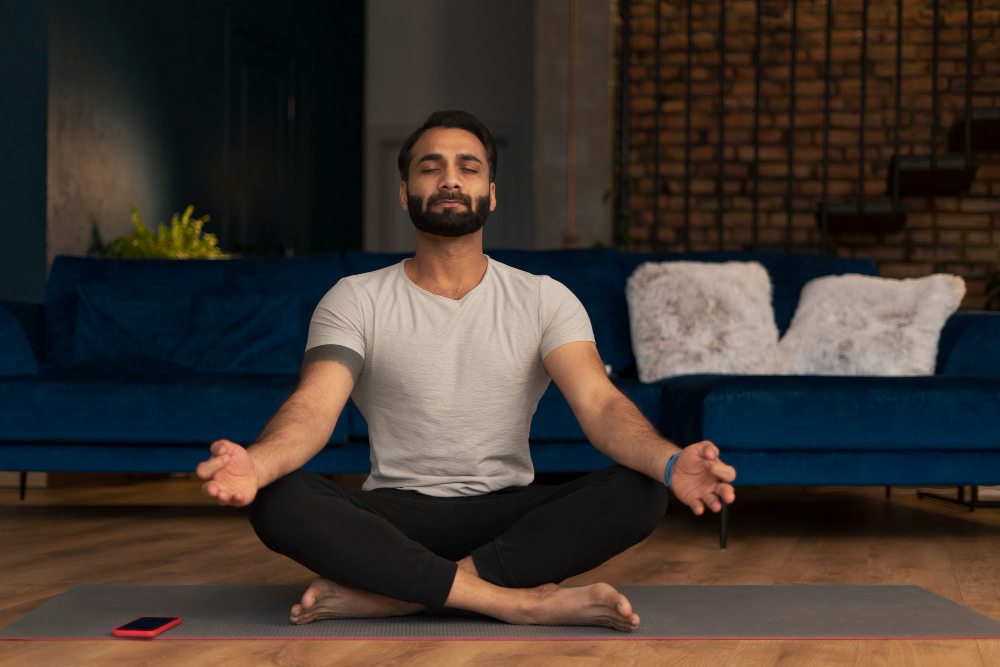In today’s fast-paced world, stress has become an unavoidable part of our lives. The demands of work, relationships, and personal responsibilities can often leave us feeling overwhelmed and exhausted. However, chronic stress can have a detrimental impact on our physical and mental well-being. It’s essential to find effective ways to reduce stress and maintain a balanced lifestyle. Let’s explore the negative impact of stress on health, the role of exercise in stress reduction, and provide practical tips for busy individuals to incorporate stress reduction techniques into their daily routine.
The Negative Impact of Stress on Health
Stress can have a profound impact on both our mental and physical health. When we experience stress, our bodies release stress hormones like cortisol, which can lead to a range of negative effects. Prolonged exposure to stress can contribute to the development of various health conditions, including:
- Cardiovascular Issues: Chronic stress can increase the risk of heart disease, high blood pressure, and heart attacks. The constant release of stress hormones can raise blood pressure and cause inflammation in the arteries, putting a strain on the cardiovascular system.
- Weakened Immune System: Stress weakens the immune system, making us more susceptible to infections, illnesses, and autoimmune disorders. It can disrupt the balance of immune cells, making it harder for the body to fight off pathogens effectively.
- Mental Health Disorders: Chronic stress is closely linked to mental health disorders such as anxiety and depression. The constant pressure and strain can negatively impact our mood, cognitive function, and overall emotional well-being.
Exercise: A Powerful Tool for Stress Reduction
Regular physical activity is one of the most effective ways to combat stress and promote overall well-being. Engaging in exercise releases endorphins, which are natural mood boosters, and helps reduce stress hormones in the body. Here’s how exercise contributes to stress reduction:
- Endorphin Release: Exercise stimulates the release of endorphins, also known as “feel-good” hormones. These chemicals act as natural painkillers and mood enhancers, reducing feelings of stress and promoting a sense of well-being.
- Stress Hormone Regulation: Physical activity helps regulate the levels of stress hormones, such as cortisol, in the body. Exercise provides an outlet for built-up tension, allowing the body to restore balance and reduce stress.
- Improved Sleep Quality: Regular exercise promotes better sleep patterns, which are essential for stress reduction. Quality sleep helps restore the body and mind, allowing for better stress management and overall well-being.
Practical Ways to Reduce Stress Throughout the Day
When life gets hectic, finding time to reduce stress may seem challenging. However, incorporating small, practical steps into your daily routine can make a significant difference. Here are some stress reduction techniques that busy individuals can implement throughout their day:
- Practice Mindfulness: Take a few minutes each day to engage in mindfulness exercises. Focus on your breath, observe your thoughts without judgment, and be fully present in the moment. This practice can help calm the mind, reduce stress, and increase self-awareness.
- Take Short Breaks: Even during busy days, make it a priority to take short breaks. Step away from your workspace, stretch your body, and give your mind a chance to recharge. These brief pauses can improve focus, productivity, and overall stress levels.
- Engage in Physical Activity: Incorporate physical activity into your daily routine, even if it’s in small increments. Take the stairs instead of the elevator, go for a brisk walk during lunch breaks, or try desk exercises like stretching or gentle yoga poses. These activities can boost mood, relieve muscle tension, and reduce stress.
- Prioritize Self-Care: Make time for activities that bring you joy and relaxation. Set aside time each day to engage in self-care practices like reading, listening to music, taking a warm bath, or pursuing a hobby. These activities provide an opportunity to unwind, reduce stress, and promote overall well-being.
How Can fitblendr Help with Stress Reduction?
You don’t have to carve out an extended amount of time to get a quick workout in. Use fitblendr and create your own workout blend that combines simple, bodyweight exercises in the afternoon or evening when you have some time. It can be in as little as 5 minutes.
You will find that as the stress of the day piles on, taking 5 or 10 minutes to do a simple workout can have a profound effect on your mood. And remember, since sleep is so important to your health, reducing your stress before you lay down can improve your sleep and overall health.

Summary
Stress reduction is essential for maintaining a healthy and balanced life. The negative impact of stress on our mental and physical health underscores the need for effective stress management strategies. Regular exercise plays a significant role in reducing stress, regulating hormones, and promoting overall well-being. By incorporating practical stress reduction techniques into our daily routines, even the busiest individuals can take meaningful steps towards a healthier and more stress-free life.
Remember, stress reduction is an ongoing process, and it requires consistent effort and self-care. Prioritize your well-being, listen to your body, and implement these practical steps to reduce stress throughout your day. You deserve a life that is filled with calmness, balance, and vitality.




